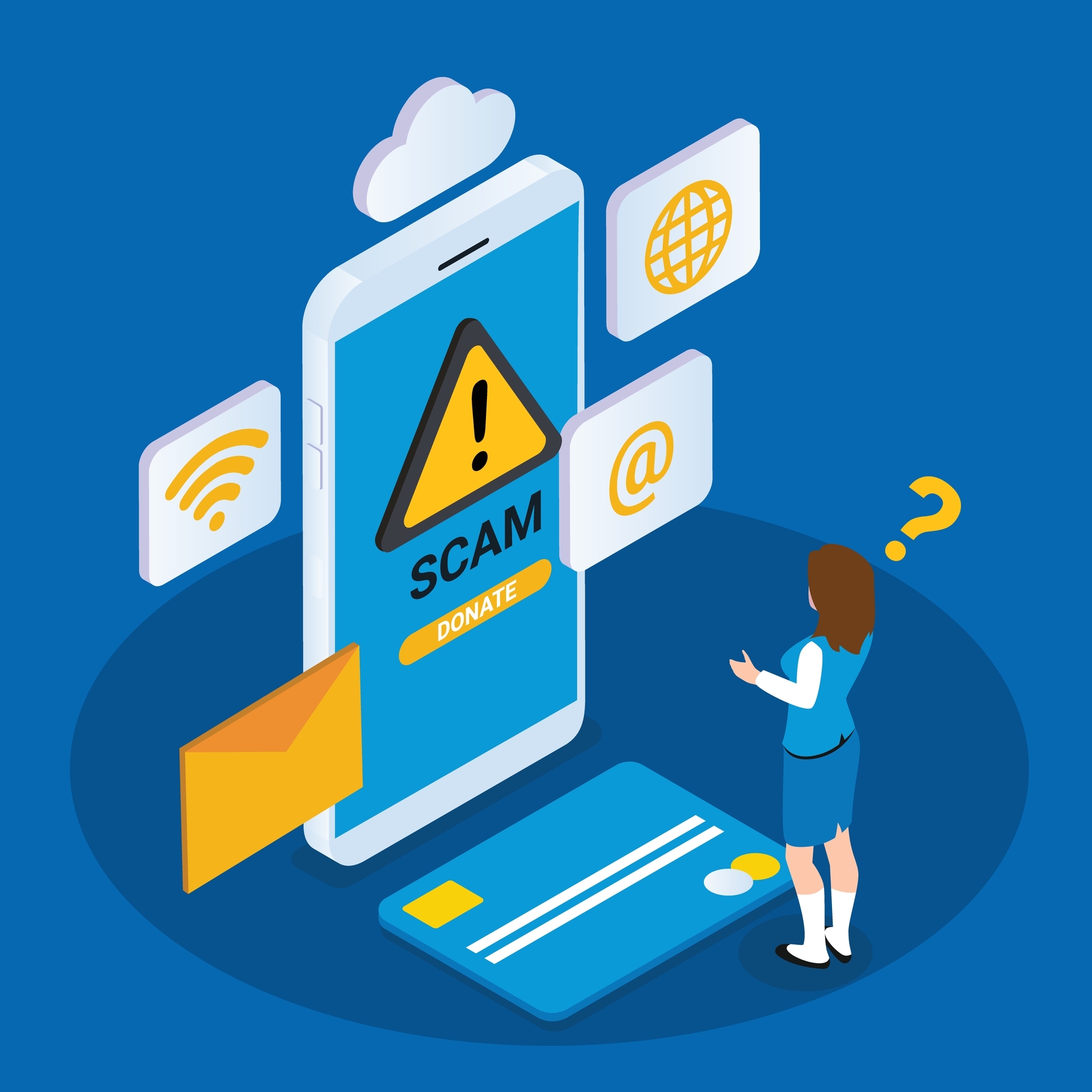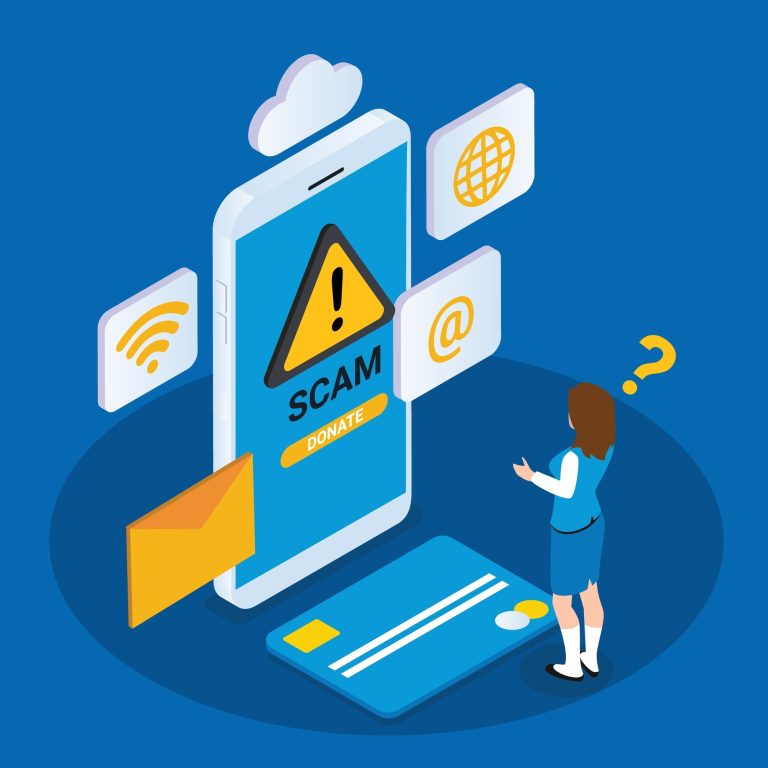What is Smishing?
You may have heard of phishing, the act of trying to obtain an individual or organization’s personal information under false pretenses, typically through emails or phone calls. However, a new method called smishing is when an attempt is made to obtain personal information such as passwords or credit cards numbers through SMS or text messages that appear to be from reputable companies.

Some smishing tactics include:
- Financial Institutions: These attacks can be masked as notifications from your bank in an attempt to unlock your account.
- Gift or Prize Winning: you receive an unexpected text message that offers you a cash prize or gift card when you visit a website.
- Delivery Notification: Have you received a text message from the post office, UPS, or another carrier asking you to verify a package delivery? If so, it’s more than likely a smishing attempt.
- Invoice or Order Confirmation: A text message is sent asking you to verify an order or billing invoice for service.
What to do if you receive a smishing message:
- Don’t respond to the text message – responding will verify your phone number to the fraudster.
- Don’t click on links in text messages – links will often connect you to a fraudulent website.
- Block the spam number on your mobile device – if you’re unsure how to do this, contact your wireless carrier for assistance.
“While we embrace digital banking, vigilance is our strongest defense,” says Jason Zickefoose, Vice President and Information Security Officer at Chesapeake Bank. “We like to remind employees and customers to treat their text messages as they would their emails. For example, election years are a great time for deploying smishing attacks. We urge everyone to report suspicious messages as junk, delete them, and be mindful of replying in any fashion until you have confirmation it is safe to do so.”
Chesapeake Bank will never send you a text message that sends you to a website to verify your personal or login information. Chesapeake Bank will also never send you a text message asking you to respond to verify your personal information. If you believe you have received a fraudulent text message that looks like it’s from Chesapeake Bank, please get in touch with your banker to report the message. Our security team uses services to report the phone numbers that send the text messages to have them taken down by the Federal Communications Commission (FCC). We take these attacks very seriously, and your security is our priority.
ABOUT CHESAPEAKE BANK
Chesapeake Bank, founded in 1900, is a subsidiary of Chesapeake Financial Shares (CFS: CPKF), headquartered in the Northern Neck, also serving Richmond, Williamsburg, the Middle Peninsula, Newport News, and Chesterfield regions. The company also offers credit processing and ABL financing. Named by American Banker as one of the Top 200 Community Banks and a Best Bank to Work For, employing 280+. Visit: www.ches.bank


